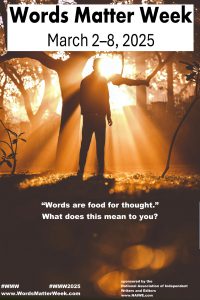 Writing Challenge Day 3
Writing Challenge Day 3
“Words are food for thought.” What does this mean to you?
Prepare for the Writing Challenge
During Words Matter Week, we host a writing challenge. Each day we will post a question on our blog and various social media outlets.
Respond to the question on your blog or social media page (be sure to include #WMW2025 in your response), and then link back to it in the comments of the corresponding article on the NAIWE blog. For each challenge you respond to, you will receive one entry (and a bonus entry for each response written on your NAIWE blog).
At the end of the week, we will have a drawing, and one person will win a fabulous prize, along with a mention and link in the next newsletter.

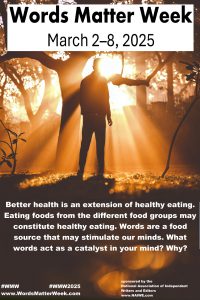 Writing Challenge Day 2
Writing Challenge Day 2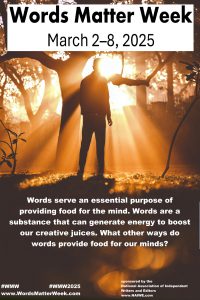 Writing Challenge Day 1
Writing Challenge Day 1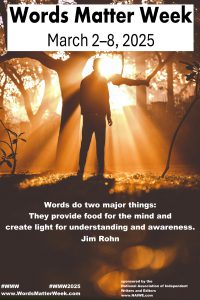 Words Matter Week, which is in its 17th year, is a holiday that is celebrated annually the first full week in March, and the National Association of Independent Writers and Editors delights in honoring its essence.
Words Matter Week, which is in its 17th year, is a holiday that is celebrated annually the first full week in March, and the National Association of Independent Writers and Editors delights in honoring its essence.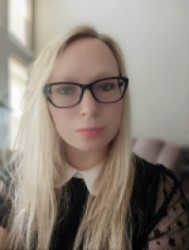 We wanted to get to know Jennia D’Lima (
We wanted to get to know Jennia D’Lima (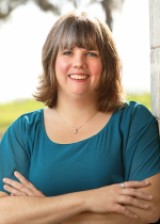 We wanted to get to know Karin Beery (
We wanted to get to know Karin Beery (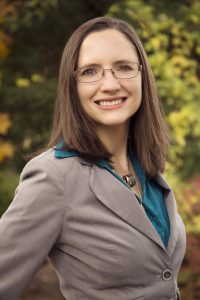 We wanted to get to know Rachel Bradley (
We wanted to get to know Rachel Bradley (
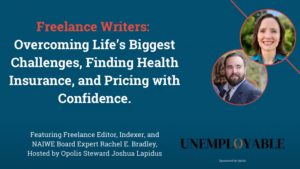 NAIWE’s Copyediting Expert Rachel Bradley was recently interviewed on
NAIWE’s Copyediting Expert Rachel Bradley was recently interviewed on 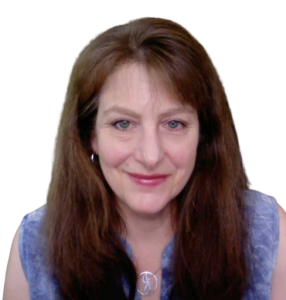 Jeanne Grunert (
Jeanne Grunert (